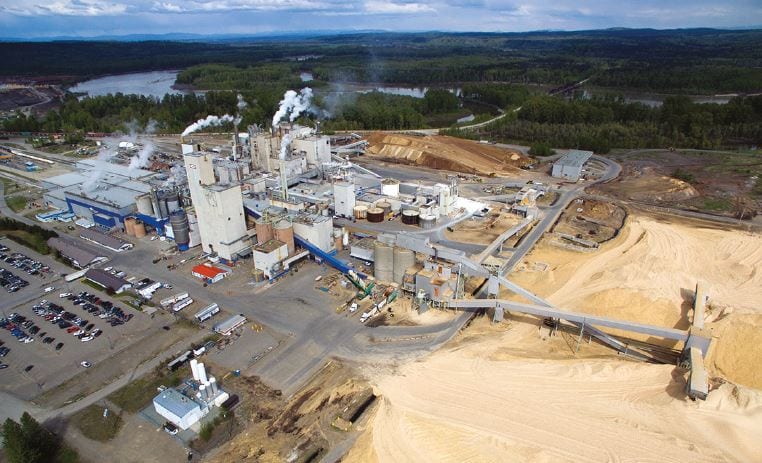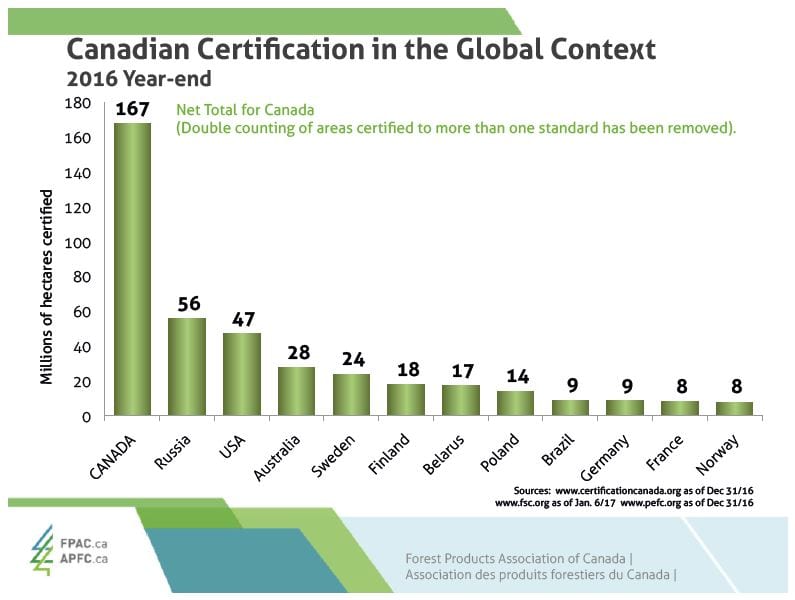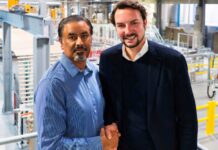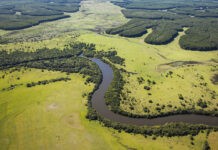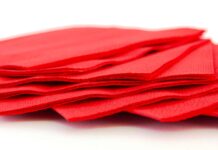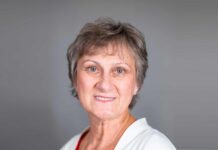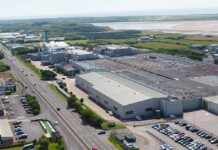The higher web strength that premium reinforced pulps bring the tissue maker improves tissue machine and converting efficiency, says Bill Adams, senior director at Canfor Pulp, the world’s fifth largest producer of market NBSK. Here, he talks bulk, absorbency and softness. A TWM report.
Canfor Pulp produces 1.2 million tonnes of northern softwood market kraft pulp per year from its three mills in northern British Columbia. Some 90% is then bleached to become northern bleached softwood kraft (NBSK) pulp.
The forests in Canada are owned by the government which is responsible for determining which areas are designated for conservation and which forests are available for commercial harvesting. Only natural forests are legal and all forests must be immediately replanted after harvesting. Plantations are illegal and forest licence operators must replant natural species similar to the species that were harvested in order to preserve the natural forest biodiversity.
In Canada, the goal of re-forestation is to generate a natural forest after harvest. Canfor is one of the few primary lumber manufacturers to offer products certified to all of the independent certification programs in North America – 99.5% of our woodlands operations and managed tenures are certified to internationally recognised standards. All of our Canadian operations are CoC-certified.
In 2016, 83% of our fibre supply was from certified sources, and all of it comes from British Columbia where it meets stringent provincial forest laws. The goal is to source 90% of our fibre from certified sources by 2020. Canada continues to be the global leader in forest certification with over 168 million hectares of certified forests. PEFC continues to be the fastest growing certification programme in Canada
with over 10 million hectares of new forestland certified since 2014. FSCcertified forests continue to decline with the loss of two million hectares since 2014.
In 2016, we planted 72 million trees on their forest licence tenures. We own the J.D. Little Forest Centre near Prince George; the nursery grows 9.0 to 9.5 million hybrid white spruce trees every year using Class A improved seed produced in a seed orchard. The remainder of the seedlings are purchased from three independent nurseries.
Improved seed is created through the conventional controlled breeding of known parent trees that exhibit superior attributes. There is no genetic modification (which is illegal in Canada); it involves the cross-pollination of trees that exhibit desired characteristics such as fast growth or resistance to pests and disease. In British Columbia more than 60% of the seedlings planted by Canfor are grown from improved seed.
The 120 to 140 frost-free days per year in the northern regions of Canada provide a short intensive growing period that result in the development of a very thin cell wall combined with a long fibre length. These fibres are ideally suited for premium tissue as the long, thin-walled and slender fibres provide the increased softness desired from premium tissue producers. The highly integrated forest sector in British Columbia allows Canfor Pulp mills to use high quality wood chips from the regional sawmills, which further enhances the delivery of the fibres for pulp manufacturing.
The very consistent biogeoclimatic conditions (temperature, elevation, precipitation and soil conditions) in this fibre region (annual average temperature of four to five degrees Celsius) produce fibres with very uniform fibre properties. This consistency in species and growing conditions enables the tissue producer to rely on uniform and ideal fibre properties to optimise tissue manufacturing operations.
We find more and more that the growth in global demand for tissue products is driven by increasing living standards and awareness in health and hygiene. More specifically, the demand for premium tissues have increased the use of the thinwalled and low-coarseness fibres that can provide web strength while preserving softness. These fibres allow tissue makers to use less softwood in the sheet compared with coarser NSBK pulps grown in warmer climates or faster growing plantation scenarios where quality is often a lower priority than growth rate.
Tissue producers looking to improve softness and reduce costs have long recognised the need to increase hardwood fibre content. The desire for increased softness has increased the value of northern Canadian pulps as the tensile strength provided by the limited softwood in the tissue sheet becomes more critical. The higher web strength that premium reinforced pulps brings the tissue maker improves tissue machine efficiency, converting efficiency and overall product performance. The highstrength web is developed with minimal refining of Canfor’s pulp which helps optimise bulk, absorbency and softness.
This article was written by Bill Adams, senior director, sustainability, customer service and innovation, Canfor Pulp.























